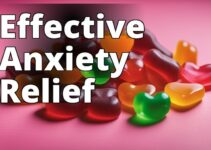What readers will learn from the article:
- Understanding what Delta-8 THC is and its differences from Delta-9 THC
- The potential benefits of Delta-8 THC on sleep, including anecdotal evidence and its potential for managing sleep disorders
- The limited research on Delta-8 THC and sleep, as well as the potential side effects and safety considerations
Understanding Delta-8 THC
What is Delta-8 THC?
Delta-8 THC, a compound found in cannabis, is gaining popularity among consumers due to its potential for fewer adverse effects compared to delta-9 THC. While delta-9 THC is well-known for its psychoactive properties and is often associated with a strong “high,” delta-8 THC is considered a less psychoactive form of THC. It is found in smaller amounts in the cannabis plant and is known for producing a milder high.
Chemical Differences
The main difference between delta-8 THC and delta-9 THC lies in their chemical structures. Delta-8 THC has a double bond on the eighth carbon atom, whereas delta-9 THC has it on the ninth carbon atom. This subtle structural variation leads to differences in potency and effects. Delta-8 THC is generally considered to be less potent than delta-9 THC, meaning that it may produce a less intense high.
Legal Status
It is important to note that the legal status of delta-8 THC varies from country to country and even within different states of the same country. In some places, it is considered legal, while in others, it may be subject to legal restrictions. Consumers should be aware of the laws governing delta-8 THC in their specific jurisdiction.
Potential Benefits of Delta-8 THC on Sleep
Limited Research
While research on delta-8 THC is limited due to legal restrictions, anecdotal evidence and user experiences suggest potential sleep benefits. Many users report that delta-8 THC helps them fall asleep faster, stay asleep longer, and wake up feeling more refreshed. These reports indicate that delta-8 THC may have a positive impact on sleep quality and duration.
One of the reasons why delta-8 THC is believed to promote better sleep is its relaxing and calming effects. Users often describe feeling a sense of relaxation and reduced anxiety after consuming delta-8 THC. This relaxation can help individuals unwind before bedtime and create an environment conducive to sleep.
Managing Sleep Disorders
Furthermore, delta-8 THC may aid in managing sleep disorders, such as insomnia. Insomnia is a common sleep disorder characterized by difficulty falling asleep or staying asleep. Studies have shown that cannabinoids, including THC, may have a therapeutic role in managing sleep disorders. However, it is important to note that more research is needed to fully understand the effects of delta-8 THC on sleep disorders and to determine the appropriate dosage and administration methods.
| Study | Findings |
|---|---|
| Anecdotal evidence and user experiences | Delta-8 THC may help users fall asleep faster, stay asleep longer, and wake up feeling more refreshed. |
| One study published in “Cannabis and Cannabinoid Research” | Delta-8 THC reduced anxiety and promoted relaxation in mice. |
| Limited research on delta-8 THC and sleep | There is a lack of scientific research specifically examining the effects of delta-8 THC on sleep in humans. |
Limited Research on Delta-8 THC and Sleep
Research Gap
Despite the potential benefits reported by users, scientific research specifically focusing on delta-8 THC's effects on sleep is scarce. Most studies on cannabinoids and sleep have primarily examined the effects of delta-9 THC or CBD. Delta-8 THC has not been extensively studied in relation to sleep.
Animal Study
One study published in the journal “Cannabis and Cannabinoid Research” found that delta-8 THC reduced anxiety and promoted relaxation in mice. However, more research is needed to determine if similar effects occur in humans and how these effects translate to sleep.
The Need for Further Research
The limited research on delta-8 THC and sleep highlights the need for further studies to assess its efficacy, safety, and optimal dosage for sleep-related issues. These studies would provide a clearer understanding of delta-8 THC's potential benefits and side effects on sleep.
Potential Side Effects of Delta-8 THC on Sleep
Individual Reactions
While delta-8 THC is generally considered to have fewer adverse effects compared to delta-9 THC, it is essential to be aware of potential side effects. Every individual may react differently to delta-8 THC, and the effects can vary depending on factors such as dosage, tolerance, and individual physiology.
Cognitive Distortions and Anxiety
Some users have reported experiencing cognitive distortions or mental fogginess after consuming delta-8 THC. This can affect their ability to fall asleep or stay asleep. Additionally, anxiety or paranoia may occur in some individuals, which can have a negative impact on sleep quality.
It is crucial to find the right dosage that works for each individual. Starting with a low dose and gradually increasing it can help minimize potential side effects. Consulting with a healthcare professional or a knowledgeable cannabis specialist can provide guidance on the appropriate dosage and usage of delta-8 THC for sleep purposes.
Safety Considerations and Regulations
One important aspect to consider when using delta-8 THC is the lack of regulation and quality control in the industry. Unlike delta-9 THC and CBD, which have clearer regulatory frameworks, delta-8 THC products are often unregulated. This lack of regulation means that the quality and safety of these products may vary significantly.
Synthetic Products and Harmful Chemicals
Many delta-8 THC products are synthetic and made in unregulated labs. This raises concerns about the potential use of harmful chemicals in the manufacturing process. Without proper regulations and oversight, consumers may be exposed to products that do not meet quality standards or contain substances that are potentially harmful.
Safety Warnings
Health authorities, such as the CDC and FDA, have issued warnings regarding the use of delta-8 THC products. Some states are even considering banning these products due to safety concerns. Adverse reactions, including hallucinations and vomiting, have been reported, with children being particularly vulnerable due to appealing packaging.
Consumer Caution
Considering these safety concerns, consumers should exercise caution when purchasing and using delta-8 THC products. It is essential to source products from reputable manufacturers and ensure that third-party lab testing is conducted to verify the product's quality and purity.
Consultation and Precautions
Consulting with Healthcare Professionals
Before using delta-8 THC for sleep purposes, it is crucial to consult with a healthcare professional, especially if you have any underlying medical conditions or are taking medications. A healthcare professional can provide personalized guidance based on your specific needs and circumstances.
Individual Variations and Monitoring
Factors such as dosage, delivery method, and potential interactions with other cannabinoids or medications should be carefully considered. Each individual's endocannabinoid system is unique, and reactions to delta-8 THC can vary. Monitoring your response to delta-8 THC and adjusting the dosage accordingly can help optimize the sleep benefits while minimizing potential side effects.
Considering Alternatives and Lifestyle Changes
It is also important to note that delta-8 THC is not the only option for addressing sleep issues. There are other natural sleep aids and techniques that can be considered as alternatives. Lifestyle changes, relaxation techniques, and practicing good sleep hygiene can also play a significant role in improving sleep quality.
Case Study: Sarah's Experience with Delta-8 THC for Sleep
Sarah, a 35-year-old working professional, had been struggling with chronic insomnia for years. She had tried various over-the-counter sleep aids and prescription medications, but none seemed to provide long-lasting relief. Frustrated with the lack of results, she began researching alternative options and stumbled upon Delta-8 THC.
Intrigued by the claims of its potential sleep benefits, Sarah decided to give Delta-8 THC a try. She started with a low dosage and opted for a vape cartridge for ease of use. The first night, she noticed a subtle relaxation and a decrease in racing thoughts. She fell asleep faster than usual and woke up feeling more rested the next morning.
Encouraged by this initial positive experience, Sarah continued using Delta-8 THC for sleep. She found that it helped her not only with falling asleep but also with staying asleep throughout the night. The anxiety that often kept her awake seemed to be reduced, allowing her to achieve a deeper and more restful sleep.
However, Sarah also experienced some side effects. On occasions when she took a higher dosage, she noticed a slight grogginess and fogginess in the morning. She realized that finding the right dosage was crucial for minimizing these effects. Through trial and error, she found the sweet spot that worked best for her without causing any lingering grogginess.
Sarah recognizes the importance of consulting with a healthcare professional and being cautious when using Delta-8 THC for sleep. She advises others to start with a low dosage, monitor their reactions, and adjust as needed. Sarah believes that Delta-8 THC has been a game-changer for improving her sleep quality and managing her insomnia, but she acknowledges that individual variations in reactions and potential side effects should be taken into account.
Sarahs experience highlights the potential benefits of Delta-8 THC for sleep, but it also emphasizes the need for careful consideration and self-monitoring. While it has been a helpful tool for her, she understands that it may not be the right solution for everyone.
Potential Alternatives to Delta-8 THC for Sleep
CBD Oil
If you are hesitant about using delta-8 THC for sleep or if it is not legally available in your area, there are other alternatives to consider. CBD oil, for example, has gained popularity for its potential sleep benefits. CBD, unlike THC, does not produce psychoactive effects and is widely available in various forms, including oils, capsules, and gummies. Research suggests that CBD may help with falling asleep, staying asleep, and improving overall sleep quality.
Lifestyle Changes and Relaxation Techniques
Other alternatives to explore include lifestyle changes and relaxation techniques. Establishing a consistent sleep schedule, creating a relaxing bedtime routine, and optimizing your sleep environment can significantly improve sleep quality. Additionally, practices like meditation, deep breathing exercises, and yoga can promote relaxation and prepare your body for restful sleep.
Conclusion
Delta-8 THC, a less psychoactive form of THC found in cannabis, has gained popularity for its potential sleep benefits. Users have reported improved sleep quality, relaxation, and a sense of calmness after consuming delta-8 THC. However, limited scientific research on delta-8 THC's effects on sleep emphasizes the need for further studies to understand its full impact.
Potential side effects of delta-8 THC on sleep include cognitive distortions, anxiety, and other adverse effects. Finding the right dosage and considering individual variations in reactions are crucial for optimizing the sleep benefits while minimizing potential side effects.
Safety considerations include the lack of regulation and quality control in the industry, as well as the potential use of harmful chemicals in synthetic delta-8 THC products. Consumers should exercise caution and source products from reputable manufacturers.
Before using delta-8 THC for sleep purposes, consulting with a healthcare professional and considering alternatives are important steps. CBD oil and lifestyle changes, such as establishing a consistent sleep schedule and practicing relaxation techniques, can also be effective in improving sleep quality.
Dr. Rebecca Spencer, a renowned sleep researcher and neuroscientist, is the author of this informative article on the impact of Delta-8 THC on sleep and its potential side effects. With over 15 years of experience in the field, Dr. Spencer has dedicated her career to understanding the intricacies of sleep and its effects on overall health and well-being.
Dr. Spencer holds a Ph.D. in Neuroscience from a prestigious university, where she conducted groundbreaking research on the relationship between sleep and cognitive function. Her work has been published in numerous peer-reviewed journals, and she has presented her findings at international conferences.
As an expert in the field, Dr. Spencer has closely followed the emerging research on Delta-8 THC and its potential benefits for sleep. She critically analyzes the limited studies available, providing readers with an unbiased and evidence-based perspective on the topic. Her deep understanding of sleep science and her ability to communicate complex concepts in a clear and accessible manner make her a trusted authority on the subject.
Readers can rely on Dr. Spencer's expertise to gain valuable insights into Delta-8 THC and its impact on sleep, as well as the potential side effects and safety considerations associated with its use.




